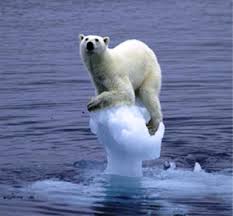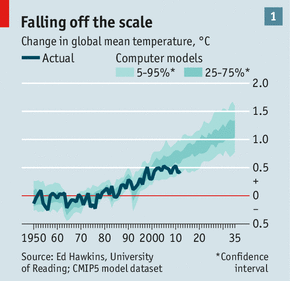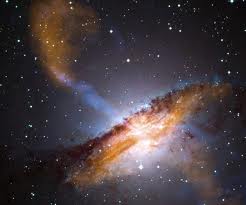I have found a great new liberal voice, writer and thinker. Further, he’s local. Professor Steve Greene is a Political Science prof here at NC State University. I firmly believe that the boys at PYM and the good Professor Scott Erb will find Steve’s insights, hopefully here, and at his own place, to be interesting and enjoyable.
I hope to see Steve here often. Even if he’s wrong 😉
Anyway, while over at Steve’s place I saw one of his posts on climate change. In it, I was reminded of a story that I’ve had in my stack for some time now.
Which is that global warming has stopped over the last 10-15 years:
OVER the past 15 years air temperatures at the Earth’s surface have been flat while greenhouse-gas emissions have continued to soar. The world added roughly 100 billion tonnes of carbon to the atmosphere between 2000 and 2010. That is about a quarter of all the CO₂ put there by humanity since 1750. And yet, as James Hansen, the head of NASA’s Goddard Institute for Space Studies, observes, “the five-year mean global temperature has been flat for a decade.”
Temperatures fluctuate over short periods, but this lack of new warming is a surprise. Ed Hawkins, of the University of Reading, in Britain, points out that surface temperatures since 2005 are already at the low end of the range of projections derived from 20 climate models (see chart 1). If they remain flat, they will fall outside the models’ range within a few years.
I think it’s important to point out that this gets to the skeptic’s whole point. That while the science that suggests higher levels of CO2 contribute to a warming planet, the positive feedback that is central to the alarmist’s argument is not at all understood or accepted.
The mismatch might mean that—for some unexplained reason—there has been a temporary lag between more carbon dioxide and higher temperatures in 2000-10. Or it might be that the 1990s, when temperatures were rising fast, was the anomalous period. Or, as an increasing body of research is suggesting, it may be that the climate is responding to higher concentrations of carbon dioxide in ways that had not been properly understood before. This possibility, if true, could have profound significance both for climate science and for environmental and social policy.
I think that the jury is still out. I don’t see indications of a catastrophic change that has or is going to occur. Until then, I think that we need to continue to watch, to observe and accept the fact that perhaps humans only have so much influence on the climate of Mother Earth.




